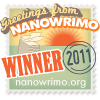How to Avoid Infodumping
11 posts •
Page 1 of 1
How to Avoid Infodumping
I have been trying to write a fantasy novel for quite some time, but I could never seem to make it very far. I believe my problem lies in the fact that I have created an extremely complex history and mythology for my world. So complex that it can be very confusing at times unless you know the lexicon, history, and mythology beforehand. In order to enjoy something, you must be able to comprehend it, but I want to avoid dumping a lot of information on the readers at one time. How do I go about doing this?
"For I am convinced that neither death nor life, neither angels nor demons, neither the present nor the future, nor any powers, neither height nor depth, nor anything else in all creation, will be able to separate us from the love of God that is in Christ Jesus our Lord." [SIZE="2"]Romans 8:38-39 (NIV)[/SIZE]
-

OfficerSting - Posts: 52
- Joined: Fri Apr 16, 2010 7:07 pm
Maybe at the start of each chapter you can have a small "entry" from an encyclopaedia (or maybe a history written years into the future) that give the information before hand in vague but definite detail and then just fill in the bits and pieces through dialogue in the actual narrative. If you really want to get post-modern then use it to play with the reader's perception of the story in order to surprise them and confound their expectations.
Unwise Toasting Sermon
The Sweet Smell of CAA
The Avatar Christian Ronin designed for me
An Avatar KhakiBlue gave to me
The avatar Termyt made for me
Current Avatar by SirThinks2much - thank you very much! :)
:)
The Sweet Smell of CAA
The Avatar Christian Ronin designed for me
An Avatar KhakiBlue gave to me
The avatar Termyt made for me
KhakiBlueSocks wrote:"I'm going to make you a prayer request you can't refuse..." Cue the violins.
Current Avatar by SirThinks2much - thank you very much!
 :)
:)-

bigsleepj - Posts: 3432
- Joined: Sun Apr 11, 2004 12:00 pm
- Location: South Africa - Oh yes, better believe it!
bigsleepj (post: 1435890) wrote:Maybe at the start of each chapter you can have a small "entry" from an encyclopaedia (or maybe a history written years into the future)
Yes, I've seen this method used effectively, even in short fiction, and it works particularly well in a historical context where past events, or the cultures of other species are being analyzed. The trick is to still give the encyclopedic entries an 'entertaining voice and focus' of their own.
That said, there are readers who enjoy the old-school writing style of Tolkien. His Middle Earth culture was super complex. Personally I found LOTR too long winded, but it's a beloved classic with plenty of fans, so you could write this way.
The most universally enjoyed stories manage to weave culture and world details bit by bit into the narrative, allowing the reader to decipher the clues given and discern how the world works on their own. As an author, it can be a little scary not to explain things 110%, but as a reader I can tell you as long as the story itself is entertaining, and the characters are believable and interesting, I don't have to completely understand everything up front, right as it happens. As long as I understand by the finale, that's fine--and sometimes its better when a sense of mystery carries my interest through the first part of the book.
-

Esoteric - Posts: 1603
- Joined: Sun Aug 22, 2004 1:12 pm
- Location: The Lost Room.
One idea is to bring in a character who is ignorant of culture and history who has to learn its subtleties. If you can manage to do that seamlessly and avoid making the character Ex Deus Machina, it will give you a chance to share information with the reader as well.
-

Syreth - Posts: 1360
- Joined: Thu Jul 15, 2004 3:12 pm
- Location: Central Washington
bigsleepj (post: 1435890) wrote:Maybe at the start of each chapter you can have a small "entry" from an encyclopaedia (or maybe a history written years into the future) that give the information before hand in vague but definite detail and then just fill in the bits and pieces through dialogue in the actual narrative. If you really want to get post-modern then use it to play with the reader's perception of the story in order to surprise them and confound their expectations.
If I remember right, The Hitchhiker's books used this. Every chapter opened with a quote from the Hitchhiker's Guide to the Galaxy.
"Before I formed you in the womb I knew you, and before you were born I consecrated you. I appointed you to be a prophet of all nations."
--Jeremiah 1:5

Hit me up on social media!
https://www.facebook.com/profile.php?id=100007205508246<--Facebook
I'm also on Amino as Radical Edward, and on Reddit as Rocklobster as well.
click here for my playlist!
my last fm profile!
--Jeremiah 1:5
Hit me up on social media!
https://www.facebook.com/profile.php?id=100007205508246<--Facebook
I'm also on Amino as Radical Edward, and on Reddit as Rocklobster as well.
click here for my playlist!
my last fm profile!
-

rocklobster - Posts: 8903
- Joined: Mon Dec 20, 2004 1:27 pm
- Location: Planet Claire
Others in this thread have given some great advice. Here's my two cents:
When it comes to writing any genre, the author can and should always know more than the reader, but a lot of fantasy writers (myself included) have this problem of the reader not being able to understand anything if we don't explain things. It's a tough balancing act between figuring out what's too much and too little, but something that helps me is remembering that there are things I need to know about the world and the characters in order to write that the reader may or may not ever find out. For example, there's no doubt in my mind that J.K. Rowling knows the entire story of Harry's parents' experience at Hogwarts, but what actually shows up in her books are only the snippets that are needed to move the plot forward. So, it might help you to think of including information in those terms. If something about the mythology of your world pertains to something the characters need to know, then put it in there even if you're not relaying the entire story.
Another way to go about it is to have some kind of "normal" scene in which there's some festival or celebration related to an aspect of the mythology. Something like this would probably appear near the beginning of the story or whenever the characters encounter a new culture.
Finally, something to remember in general is to assume that your readers/audience are at least as smart as you, if not smarter. This means that there are probably things you don't have to spell out in order for them to make sense. That's not to say that you shouldn't explain things at all, but sometimes very little information gives people enough to understand your story and as it goes along you reveal more and more. Perhaps thinking of your own experience as a reader will help. Were you able to follow along with the last story you read even if the author didn't explain everything about the world? If so, how did he/she manage that? Once you've figured out those answers, you can try applying the same techniques to your own writing.
When it comes to writing any genre, the author can and should always know more than the reader, but a lot of fantasy writers (myself included) have this problem of the reader not being able to understand anything if we don't explain things. It's a tough balancing act between figuring out what's too much and too little, but something that helps me is remembering that there are things I need to know about the world and the characters in order to write that the reader may or may not ever find out. For example, there's no doubt in my mind that J.K. Rowling knows the entire story of Harry's parents' experience at Hogwarts, but what actually shows up in her books are only the snippets that are needed to move the plot forward. So, it might help you to think of including information in those terms. If something about the mythology of your world pertains to something the characters need to know, then put it in there even if you're not relaying the entire story.
Another way to go about it is to have some kind of "normal" scene in which there's some festival or celebration related to an aspect of the mythology. Something like this would probably appear near the beginning of the story or whenever the characters encounter a new culture.
Finally, something to remember in general is to assume that your readers/audience are at least as smart as you, if not smarter. This means that there are probably things you don't have to spell out in order for them to make sense. That's not to say that you shouldn't explain things at all, but sometimes very little information gives people enough to understand your story and as it goes along you reveal more and more. Perhaps thinking of your own experience as a reader will help. Were you able to follow along with the last story you read even if the author didn't explain everything about the world? If so, how did he/she manage that? Once you've figured out those answers, you can try applying the same techniques to your own writing.
Fanfiction (updated 1/1/11)-- Lucky Star--Ginsaki ch. 4
[color="Magenta"]Sometimes I post things.[/color]



[color="Magenta"]Sometimes I post things.[/color]



-

LadyRushia - Posts: 3075
- Joined: Mon Aug 06, 2007 8:38 pm
- Location: In a dorm room/a house.
bigsleepj (post: 1435890) wrote:Maybe at the start of each chapter you can have a small "entry" from an encyclopaedia
Another excellent example of this would be in the Dune books by Frank Herbert! I always loved the quotes from supposed historical accounts, many of which are very quotable indeed...though I suppose the purpose they serve isn't always introducing the way the world works.
More in line with what you're needing, I think, would be like Assassin's Apprentice by Robin Hobb (which I would heartily recommend to any fantasy fan). The whole story is first-person, but the reason he's telling the story is because he's trying to write a history. He ends up telling mostly just his own story, but there are snippets that appear to be what actually ends up in his account, each of varying lengths and often explaining an aspect that will come into play in that chapter (like explaining what the deities of the land are, where the Red-Ship Raiders came from, what the culture of the Mountain Kingdom is like, etc.). But Hobb doesn't skimp on the "actual" story either]That said, there are readers who enjoy the old-school writing style of Tolkien. His Middle Earth culture was super complex. Personally I found LOTR too long winded, but it's a beloved classic with plenty of fans, so you could write this way.[/QUOTE]
Generally, I'd say that unless your name is J.R.R. Tolkien, you shouldn't write a fantasy novel like that. I mean, I love LotR to death, and I think the writing is beautiful and engrossing rather than soporific, but I think there are very few people who could pull off something like that. I mean, in so many ways LotR goes against general guidelines of what makes a good, interesting novel, and I think the only reason it works at all is because Tolkien was a genius and an expert in language, which was after all his primary interest in creating Middle-Earth in the first place.
/pointless rambling
And I don't know how many people are like me, but I actually relish stories that don't feel the need to spell out every minute detail of the culture to me. In some ways, I prefer Narnia over some other fantasy books because there isn't this intricate map in the beginning. When I see a map, I always feel the need to keep looking at it, to make sure I understand every detail of where things are. It's the same way with culture - if every little thing is spelled out, I feel the need to remember it all. I actually like stories where it's assumed you know the way things work anyway, without bothering to explain the whole history; that way, the way the world works and where things came from are revealed more naturally. Reading The Handmaid's Tale by Margaret Atwood was a very enjoyable experience because, even though it wasn't a fantasy, every piece of information was given to you out of order and barely explained, so you had to fit it all together yourself. And seemingly effortlessly, by the end I had a perfect picture of what Gilead was like.
You can find out things about the past that you never knew. And from what you've learned, you may see some things differently in the present. You're the one that changes. Not the past.
- Ellone, Final Fantasy VIII

"There's a difference between maliciously offending somebody - on purpose - and somebody being offended by...truth. If you're offended by the truth, that's your problem. I have no obligation to not offend you if I'm speaking the truth. The truth is supposed to offend you; that's how you know you don't got it."
- Brad Stine
- Ellone, Final Fantasy VIII

"There's a difference between maliciously offending somebody - on purpose - and somebody being offended by...truth. If you're offended by the truth, that's your problem. I have no obligation to not offend you if I'm speaking the truth. The truth is supposed to offend you; that's how you know you don't got it."
- Brad Stine
-

the_wolfs_howl - Posts: 3273
- Joined: Thu Mar 01, 2007 11:26 pm
- Location: Not Paradise...yet
the_wolfs_howl (post: 1436758) wrote:Generally, I'd say that unless your name is J.R.R. Tolkien, you shouldn't write a fantasy novel like that. I mean, I love LotR to death, and I think the writing is beautiful and engrossing rather than soporific, but I think there are very few people who could pull off something like that. I mean, in so many ways LotR goes against general guidelines of what makes a good, interesting novel, and I think the only reason it works at all is because Tolkien was a genius and an expert in language, which was after all his primary interest in creating Middle-Earth in the first place.
/pointless rambling
And I don't know how many people are like me, but I actually relish stories that don't feel the need to spell out every minute detail of the culture to me. In some ways, I prefer Narnia over some other fantasy books because there isn't this intricate map in the beginning. When I see a map, I always feel the need to keep looking at it, to make sure I understand every detail of where things are. It's the same way with culture - if every little thing is spelled out, I feel the need to remember it all. I actually like stories where it's assumed you know the way things work anyway, without bothering to explain the whole history]The Handmaid's Tale[/i] by Margaret Atwood was a very enjoyable experience because, even though it wasn't a fantasy, every piece of information was given to you out of order and barely explained, so you had to fit it all together yourself. And seemingly effortlessly, by the end I had a perfect picture of what Gilead was like.
I'd have to say the opposite. Different people like different stories. Some people may enjoy the overly-described cultural details. Hey, depending on the details of the culture, it may be very interesting myth culture study that one day some teacher at some school has some students read so that they gain insight into possibilities for the civil structure, infrastructure, or social structure of various civilizations. Yeah, so I'm rambling.
Most people will probably want what the_wolfs_howl is suggesting. However, as an author, details can be fun. Just spill enough to keep the story going - i.e. make sure that the details you share are relevant. If people are interested, believe me, fan-bases are full of people who look at all the most irrelevant culture and tech stuff just because it's associated with a story / author's universe.
Summary (in case you didn't care to read the above): As LadyRushia said, share what details are necessary to keep the story going.
- God is always with us, especially when we feel most alone.
http://ablipintime.deviantart.com/
Htom Sirveaux (post: 1435089) - "We should all start speaking telepathically."
Midori (post: 1457302) "Sometimes, if I try hard, I can speak in English."
(post: 1481465) "Overthinking is an art."
Goldenspines - "Fighting the bad guys and rescuing princesses from trolls and all that. "
http://ablipintime.deviantart.com/
Htom Sirveaux (post: 1435089) - "We should all start speaking telepathically."
Midori (post: 1457302) "Sometimes, if I try hard, I can speak in English."
(post: 1481465) "Overthinking is an art."
Goldenspines - "Fighting the bad guys and rescuing princesses from trolls and all that. "
-

ABlipinTime - Posts: 1006
- Joined: Sun Aug 22, 2010 1:19 am
This thread has inspired me to pick up my pen, balance it on my nose, and start typing again! Unfortuneately, I must go to bed and work all day tomorrow. Perchance I'll remember these tips in the future...
One thing to point out though with all the peeps saying, "Just say what's nescessary." is that when you know all, it's really difficult to know what is nescessary. But the only way to fix that is editor siblings. XD
One thing to point out though with all the peeps saying, "Just say what's nescessary." is that when you know all, it's really difficult to know what is nescessary. But the only way to fix that is editor siblings. XD
Proverbs 31:32 "...when she watches anime, she keeps the room well lit and sits at a safe distance."
-

Rusty Claymore - Posts: 1258
- Joined: Sun Jan 03, 2010 2:18 pm
- Location: Alaska
If your story as a whole requires people to understand a complex history and mythology, you may be trying to do too much at once. If you can get the people moving in realistic ways, then you can always fill in the history and mythology later, if you even need to.
Also, I recommend you try to avoid using made-up (fake foreign) words - it rarely works well.
Also, I recommend you try to avoid using made-up (fake foreign) words - it rarely works well.
The cake used to be a lie like you, but then it took a portal to the deception core.
-

Kaligraphic - Posts: 2002
- Joined: Wed Jul 21, 2004 12:00 pm
- Location: The catbox of DOOM!
Kaligraphic (post: 1436899) wrote:If your story as a whole requires people to understand a complex history and mythology, you may be trying to do too much at once. If you can get the people moving in realistic ways, then you can always fill in the history and mythology later, if you even need to.
Also, I recommend you try to avoid using made-up (fake foreign) words - it rarely works well.
Agreed. Dune somehow pulls it off, but I wouldn't recommend that kind of fire-hose style introduction to the universe. You have to be either really good or really lucky to make it work.
I recommend that you check out Starship Troopers as a good example of how to ease people into the new world by referring to things that are familiar in the real one. There are lots of references there to foreign things; ships, people, governments, technology, etc. Nonetheless, they all are familiar enough that we can guess what their purpose is.
Where an Eidolon, named night, on a black throne reigns upright.
-

ich1990 - Posts: 1546
- Joined: Mon Apr 16, 2007 2:01 pm
- Location: The Land of Sona-Nyl
11 posts •
Page 1 of 1
Who is online
Users browsing this forum: No registered users and 31 guests

